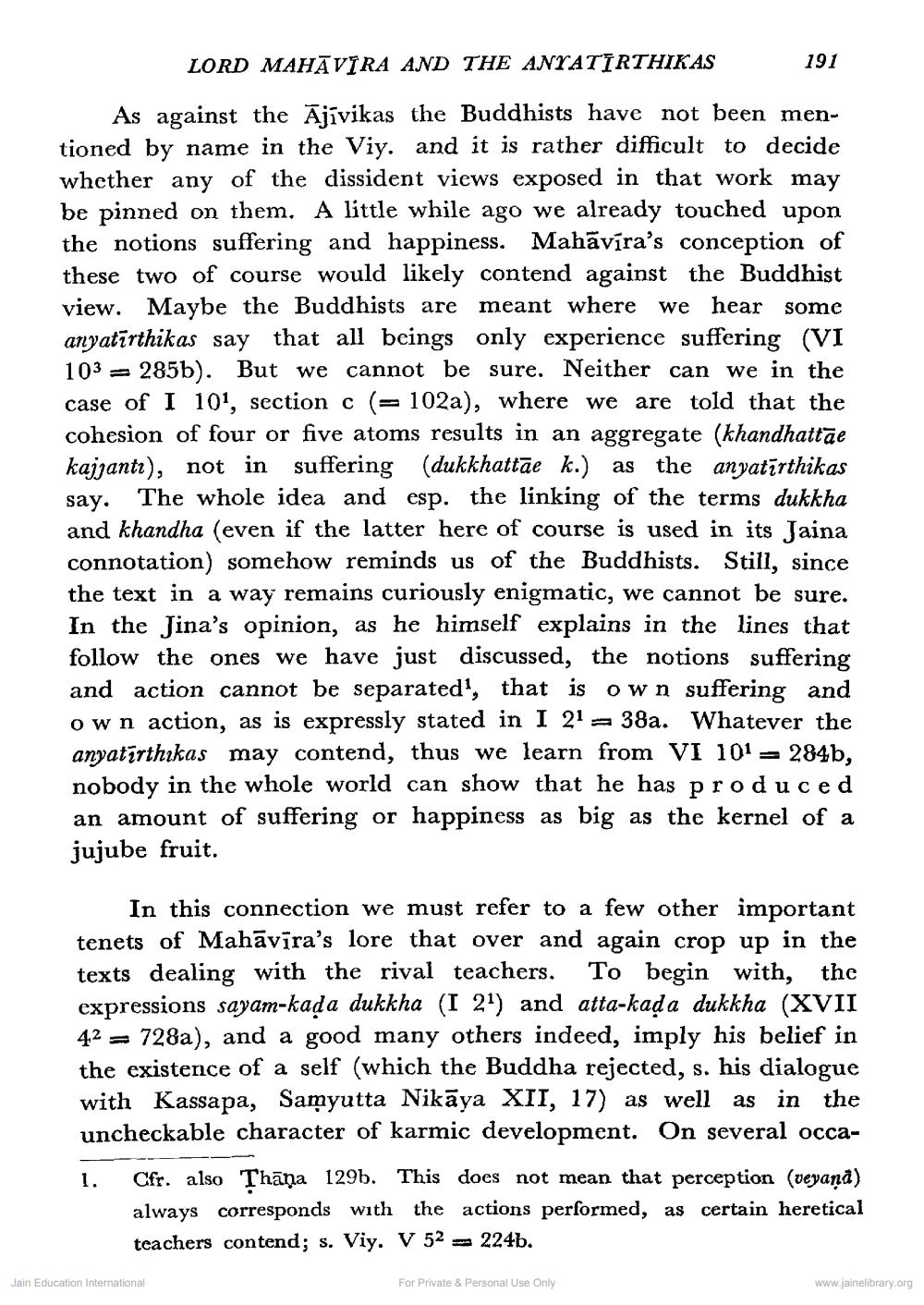________________
LORD MAHAVIRA AND THE ANYATIRTHIKAS
As against the Ajivikas the Buddhists have not been mentioned by name in the Viy. and it is rather difficult to decide whether any of the dissident views exposed in that work may be pinned on them. A little while ago we already touched upon the notions suffering and happiness. Mahavira's conception of these two of course would likely contend against the Buddhist view. Maybe the Buddhists are meant where we hear some anyatirthikas say that all beings only experience suffering (VI 103= 285b). But we cannot be sure. Neither can we in the case of I 101, section c (= 102a), where we are told that the cohesion of four or five atoms results in an aggregate (khandhattae kajjanti), not in suffering (dukkhattae k.) as the anyatirthikas The whole idea and esp. the linking of the terms dukkha and khandha (even if the latter here of course is used in its Jaina connotation) somehow reminds us of the Buddhists. Still, since the text in a way remains curiously enigmatic, we cannot be sure. In the Jina's opinion, as he himself explains in the lines that follow the ones we have just discussed, the notions suffering and action cannot be separated', that is own suffering and own action, as is expressly stated in I 21 38a. Whatever the anyatirthikas may contend, thus we learn from VI 101 284b, nobody in the whole world can show that he has produced an amount of suffering or happiness as big as the kernel of a jujube fruit.
say.
In this connection we must refer to a few other important tenets of Mahāvīra's lore that over and again crop up in the texts dealing with the rival teachers. To begin with, the expressions sayam-kaḍa dukkha (I 21) and atta-kaḍa dukkha (XVII 42= 728a), and a good many others indeed, imply his belief in the existence of a self (which the Buddha rejected, s. his dialogue with Kassapa, Samyutta Nikaya XII, 17) as well as in the uncheckable character of karmic development. On several occa
191
1. Cfr. also Thāņa 129b. This does not mean that perception (veyaṇā) always corresponds with the actions performed, as certain heretical teachers contend; s. Viy. V 52
224b.
Jain Education International
For Private Personal Use Only
www.jainelibrary.org




